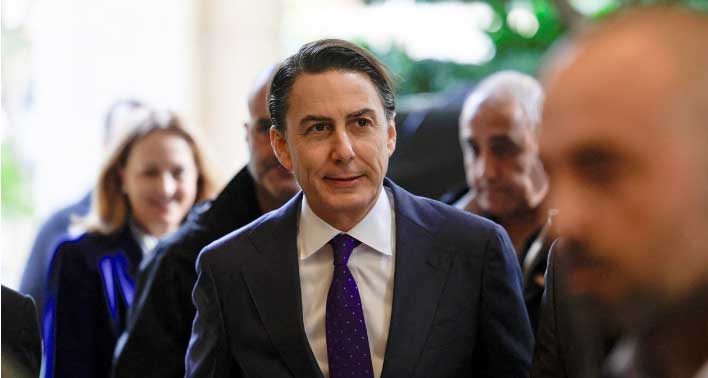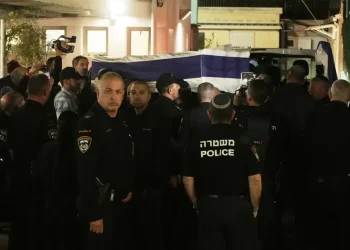US Envoy Visits Beirut Amid Ongoing Israel-Hezbollah Tensions
Beirut, Lebanon — Amos Hochstein, a U.S. envoy, has arrived in Beirut as efforts intensify to broker a ceasefire between Israel and Hezbollah. According to Lebanon’s National News Agency (NNA), the visit is part of ongoing negotiations aimed at halting hostilities, though officials caution that a deal is not yet imminent.
Lebanese Prime Minister Najib Mikati expressed optimism, stating that Beirut has responded “positively” to a U.S.-backed proposal. However, an Israeli source close to the talks voiced skepticism, citing Hezbollah’s refusal to accept a key Israeli demand: the right to strike in the event of a ceasefire violation.
Details of the Potential Ceasefire Deal
The U.S.-backed proposal seeks to establish a 60-day cessation of hostilities, framing it as a foundation for a long-term ceasefire. According to Lebanese officials, the plan adheres to UN Resolution 1701, which concluded the 2006 Lebanon-Israel war. Key provisions include:
- Israeli Withdrawal: Israeli ground forces, currently operating in southern Lebanon, would withdraw.
- UN and Lebanese Army Oversight: Only the Lebanese army and UN peacekeeping forces would be permitted to operate south of the Litani River.
- Stricter Resolution Enforcement: Both sides would adhere more rigorously to Resolution 1701.
Points of Contention
Despite progress, significant hurdles remain:
- Israeli Operational Freedom:
Israeli officials demand the ability to strike Hezbollah in response to any ceasefire violations. Minister Bezalel Smotrich stated that “full operational freedom” for the Israeli military in southern Lebanon is “non-negotiable.”- Smotrich added, “At the end of the war, we will have operational freedom in Gaza, and so we will also have operational freedom in Lebanon.”
- Lebanese Rejection of Demands:
Lebanese leaders have strongly opposed the idea of granting Israel such operational freedom.- Prime Minister Mikati dismissed these reports as “speculation,” emphasizing that he has not seen such clauses in the proposal.
- Parliament Speaker Nabih Berri, an ally of Hezbollah and a key figure in the talks, told Saudi media that the U.S. proposal contains no mention of Israeli military freedom in Lebanon. He stressed that such a demand would be “unacceptable.”
Broader Implications
The talks have drawn international attention, with heightened hopes for a breakthrough. A Lebanese source familiar with the negotiations revealed that U.S. envoy Amos Hochstein has gained support from President-elect Donald Trump, a factor believed to enhance the likelihood of success.
While progress is evident, significant challenges remain before a ceasefire can be finalized. Both sides will need to navigate deep-seated mistrust and conflicting priorities as negotiations continue.
This article was rewritten by JournosNews.com based on verified reporting from trusted sources. The content has been independently reviewed, fact-checked, and edited for accuracy, neutrality, tone, and global readability in accordance with Google News and AdSense standards.
All opinions, quotes, or statements from contributors, experts, or sourced organizations do not necessarily reflect the views of JournosNews.com. JournosNews.com maintains full editorial independence from any external funders, sponsors, or organizations.
Stay informed with JournosNews.com — your trusted source for verified global reporting and in-depth analysis. Follow us on Google News, BlueSky, and X for real-time updates.













